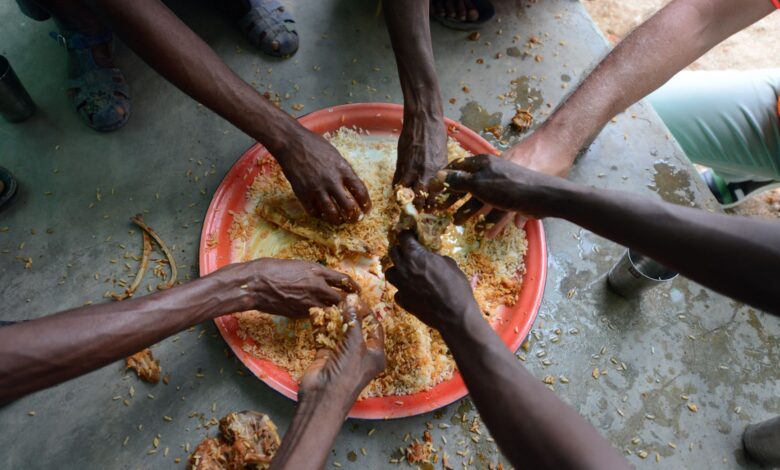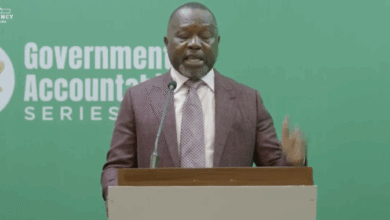
Attaining food security: Govt ends seeds imports – Farmers to get local varieties only from 2026
The Ministry of Food and Agriculture (MoFA) will from next year supply only locally sourced seeds to Ghanaian farmers, the sector Minister, Eric Opoku, has announced.
He said the move would mark a strategic shift towards seed sovereignty as a cornerstone of national food security.
“Without seed sovereignty, there can be no food security,” Mr Opoku said when he took his turn at the Government Accountability Series at the Presidency in Accra yesterday.
The minister outlined a comprehensive plan to end the recurring crisis of delayed imported seeds that often arrived after the planting season.
Mr Opoku revealed that the new policy was being driven by significant partnerships with international allies.
He stated that with the support of the Korea Plant Industries Association (KOPIA), Ghanaian farmers were undergoing intensive training in seed production. Simultaneously, Korea Rural Cooperation was also developing irrigation infrastructure on 100 hectares of land to support rice seed production.
To ensure sustainability and affordability, the Korea Institute for Advancement of Technology (KIAT) has commissioned a one-megawatt (1MW) solar farm to power the irrigation systems, with technical support from the Ministry of Energy, the minister detailed.
“This project is expected to be completed in 2027. It will produce 10,000 tonnes of high-quality rice seed, and Ghana will be well on its way to rice seed independence,” Mr Opoku said.
Further collaborations were underway with the Japan International Cooperation Agency, which is training rice seed producers in Wheta in the Ketu North District in the Volta Region, the Upper East Regional capital, Bolgatanga, and Tono in the Kassena-Nankana District, Upper East.
A Memorandum of Understanding (MoU) has also been signed with the government of The Netherlands to facilitate both technical and financial capacity building for the development of vegetable seed production in Ghana.
The minister also expressed the ministry’s “unqualified appreciation” to KOPIA for making available 300 tonnes of Agyapa Rice Seed, developed by the Council for Scientific and Industrial Research (CSIR), to support rice farmers free of charge.
The foundational work on seed sovereignty is part of a broader scientific overhaul.
“FAO, MoFA and the Soil Research Institute of CSIR are collaborating to build a reliable scientific foundation for sustainable soil management and agricultural planning in Ghana,” Mr Opoku stated.
On climate resilience, the Food and Agriculture Minister reported significant strides, noting the installation of 20 automated weather stations.
“These stations, unlike manual ones, collect data automatically 24/7, ensuring higher accuracy and consistency, faster data transmission and enhanced forecasting and climate modelling for disaster prevention and farm planning,” he explained.
This focus on seed sovereignty and climate resilience forms a critical part of the broader Agriculture for Economic Transformation Agenda, which is being implemented through the Feed Ghana Programme.
Mr Opoku added that the programme had now evolved into a national movement, with institutions such as the Ghana Armed Forces, the National Service Authority and over 413 schools actively engaged in institutional farming.
To support the agricultural transformation, the ministry was also aggressively expanding irrigation infrastructure, he added.
The Food and Agriculture Minister also highlighted major private sector involvement, announcing a €154 million investment by the government of Italy in partnership with BF International, aimed at transforming large-scale commercial agriculture in Ghana.
Under the initiative, he said, a 10,000-hectare irrigated model farm was being developed for the production of rice, maize, soya and tomato on an all-year-round basis.
Mr Opoku assured the nation of the ministry’s commitment to delivering results with urgency, integrity and accountability, framing the collective effort as a generational mandate to transform Ghana’s agricultural sector.
Poultry sector
Further solidifying the drive towards self-sufficiency, the government is executing a major revitalisation of Ghana’s poultry sector to curb the annual import bill of between $300 million and $400 million.
This is being pursued through a three-pronged strategy under the Poultry Industry Revitalisation Programme.
The programme comprises the Poultry Farm to the Table Project, which targets the production of four million birds through 50 anchor farmers; the Poultry Intensification Programme, which will empower 500 small-to-medium scale farmers to produce three million birds; and the ‘Nkoko Nketenkete’ Initiative, a backyard poultry farming programme focused on women and youth, also targeting three million birds.
The minister confirmed that the ‘Nkoko Nketenkete’ initiative, which had already successfully distributed 720,000 birds to 13,000 farmers in 12 districts as a pilot, would be fully launched for the immediate distribution of three million birds to all constituencies.
To manage the anticipated boom in local production, he said, the government would establish a poultry processing factory in Bechem, and that the sod would be cut on Thursday.
Mr Opoku announced that the procurement processes had been completed, and the sod-cutting ceremony would be performed by President John Dramani Mahama on Thursday.
“These coordinated interventions are designed to substantially reduce Ghana’s reliance on imported poultry, create sustainable jobs and improve access to affordable, protein-rich food for all Ghanaians,” Mr Opoku stated.




